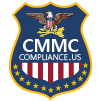DDFARS 252.204-7012 Compliance Services in Colorado Springs, CO
Department of Defense (DoD) contractors and subcontractors are required by the Defense Federal Acquisition Regulation Supplement (DFARS) Clause 252.204-7012 to take adequate technical provisions to protect Controlled Unclassified Information (CUI) and report cybersecurity incidents.
Keep reading to learn more about DFARS 252.204-7012, including what it entails and how to achieve DFARS compliance easily and reliably.
What Is DFARS 252.204-7012?
Government contractors and subcontractors are required by DFARS Clause 252.204-7012 to protect Controlled Unclassified Information (CUI) in accordance with NIST SP 800-171, a cybersecurity framework created by the National Institute of Standards and Technology (NIST).
- Access Control
- Awareness and Training
- Audit and Accountability
- Configuration Management
- Identification and Authentication
- Incident Response
- Maintenance
- Media Protection
- Personnel Security
- Physical Protection
- Risk Assessment
- Security Assessment
- System and Communications Protection
- System and Information Integrity
Contractors must provide the Defense Department with access to additional information or equipment that is necessary to conduct a forensic analysis, if requested.
Additionally, DFARS mandates contractors to submit to the DoD Cyber Crime Center (DC3) any malicious software isolated in connection with a reported cyber incident.
How Do I Know If I Have CUI?
CUI is information created or owned by the U.S. government that doesn’t warrant classified status but requires safeguarding or dissemination controls outlined by laws, regulations, and government-wide policies.
Many documents containing CUI bear special markings indicating so. However, DFARS compliance also applies to any information “Collected, developed, received, transmitted, used, or stored by or on behalf of the contractor in support of the performance of the contract.”
So there are ways to identify CUI. First, if a document is marked as CUI, you know you are dealing with Controlled Unclassified Information. And second, any information you receive, collect, or transmit as you perform a DoD contract, is also considered CUI.
DoD Cybersecurity Incident Reporting
DFARS defines cyber incidents as any action taken through the use of computer networks that results in a compromise or an actual or potentially adverse effect on an information system and/or the information residing therein.
As a general rule, you should report to the DoD any cyber incident that:
- Results in a significant loss of data, system availability, or control of systems
- Impacts a large number of victims
- Indicates unauthorized access to, or malicious software present on, critical information technology systems
- Affects critical infrastructure or core government functions
- Impacts national security, economic security, or public health and safety
Why Is DFARS Compliance Important?
This means that if you want to maintain or keep winning contracts with the DoD, then you need to be DFARS-compliant.
As you can see from the series of practice families listed above, compliance with DFARS Clause 252.204-7012 impacts every aspect of your organization, from personnel to information systems.
And while achieving DFARS 252.204-7012 compliance can be a challenge, things are a lot easier if you can count on the right help.
That’s why at CMMC Compliance / Brea Networks, we have made it our mission to help contractors in Colorado Springs, CO, and all over the United States, achieve their compliance goals.
How To Achieve DFARS Compliance?
The good news is that we simplify things for you by breaking down the DFARS / NIST SP 800-171 compliance process into three phases.
- Gap Analysis. First, we evaluate your current security measures to determine your security status and provide the best remediation options.
- Provisional Assessment. After completing the gap analysis, our team carefully reviews their findings.
- Remediation. We bridge your security gaps by updating systems, strengthening security practices, and creating new policies.
Why Companies in Colorado Springs, CO, Choose CMMC Compliance / Brea Networks
Here are some of the reasons why organizations in Colorado Springs, CO, and all over the United States trust us to meet their DFARS 252.204-7012 compliance needs:
- Customer-centric. We are 100% focused on ensuring that your compliance needs are met—and exceeded.
- Know-How. We have helped Colorado Springs, CO, companies just like yours achieve their DFARS compliance goals.
- Unlimited Compliance Support. Because we understand that compliance is a continuous process.
- Customized solutions. No two organizations are the same, so we tailor our solutions to the unique needs of your company.
We Help Colorado Springs, CO, Companies Achieve DFARS 252.204-7012 Compliance
Our services are designed to help you meet your compliance needs easily, affordably, and without stress so you can focus on winning and maintaining DoD contracts.
We have successfully assisted many Colorado Springs, CO, organizations on their compliance journey, and we look forward to doing the same for you. Contact our specialists today!

